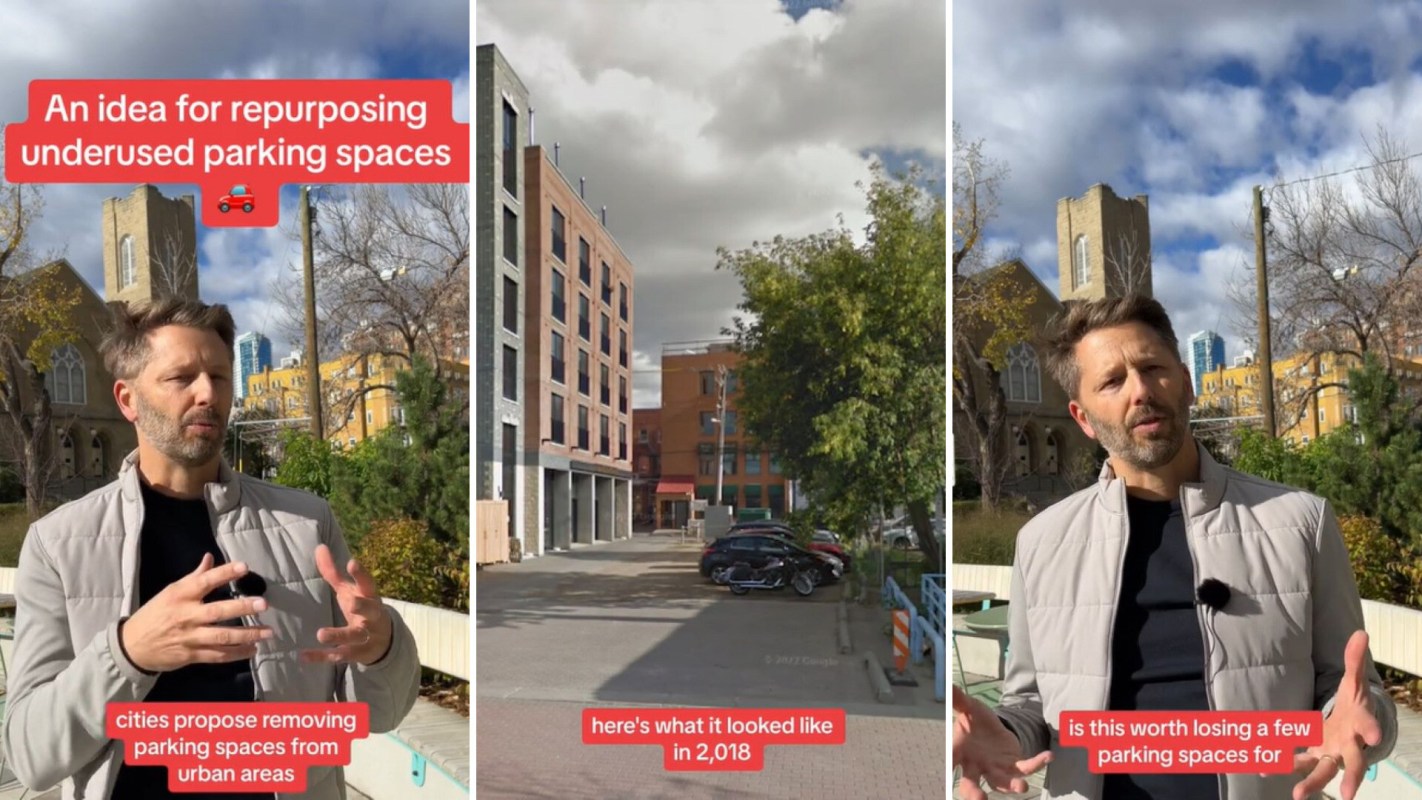Edmonton, Alberta, is among the latest cities to get in on the no-parking lifestyle.
TikToker TomBabin (@tom_babin) recently shared the revitalization of a parking lot in the Strathcona district of the Oil Capital of Canada, saying the space gave way to an addition that houses a bakery plus a pedestrian area.
@tom_babin Removing parking spaces from urban areas is often controversial, but here's an example from Edmonton that used the space to make something better. #cycling #bikecommuting #urbancycling #bikecommute #commuting #urbanism ♬ original sound - TomBabin
The bakery's owner told Babin it was a better situation.
"Neighborhood customers walk or bike here, and the parking hasn't been a huge issue," Jeff Nachtigall of Sugared and Spiced Baked Goods said.
Cities from Philadelphia to Austin, Texas, to Anchorage, Alaska, are making similar changes to address problems with the climate, car dependency, and affordable housing.
Philly, for example, sprinkled Henry Avenue with oases for pollinators and other wildlife by replacing streetside parking spots with native gardens, which not only beautify the area but also decrease the urban heat island effect, improve drainage, and provide food and habitat for animals.
In a different TikTok, Babin pointed out other benefits of redesigning streets by touting Rue Saint-Denis in Montréal. Two years after the area was reworked to accommodate pedestrians and bikers more so than vehicles, the avenue's commercial occupancy is up 10 percentage points.
Walkable cities also boost physical and mental health, according to the Keppel Health Review.
In a January article about how cities in the United States are "falling out of love with the parking lot," Columbia Business School climate economist Gernot Wagner told Wired that "parking minimums have helped kill cities."
Austin is the largest city in the country to do away with such regulations. The city council voted in November to allow developers to determine how much parking to build out for single-family housing, apartment buildings, offices, and shopping malls.
"Getting rid of parking minimums is an amazing step. It's a piece in the puzzle of climate policy," Wagner said. "There's a major rethink going on now, which is good for cities and for families."
Nashville, Tennessee, is another city on board with this approach. Metropolitan Council vice mayor Angie Henderson, then a member of the council, co-sponsored an ordinance to change parking-spot minimums to maximums in the city core.
"Land use policy is inextricably linked to climate policy, and I think at a local level this is the primary way we can help on that," Henderson said. "So much good work on climate is being done in cities, which is exciting. There's real momentum around parking policy now."
TikTokers praised the transformation.
"Like, what awesome urban neighborhoods have a lot of surface parking?" one commenter wrote. "Less parking = more city. Pretty simple calculation!"
Another said: "Reducing car traffic and parking has always been a boon to business. Cars don't shop. Humans do."
Join our free newsletter for cool news and actionable info that makes it easy to help yourself while helping the planet.









